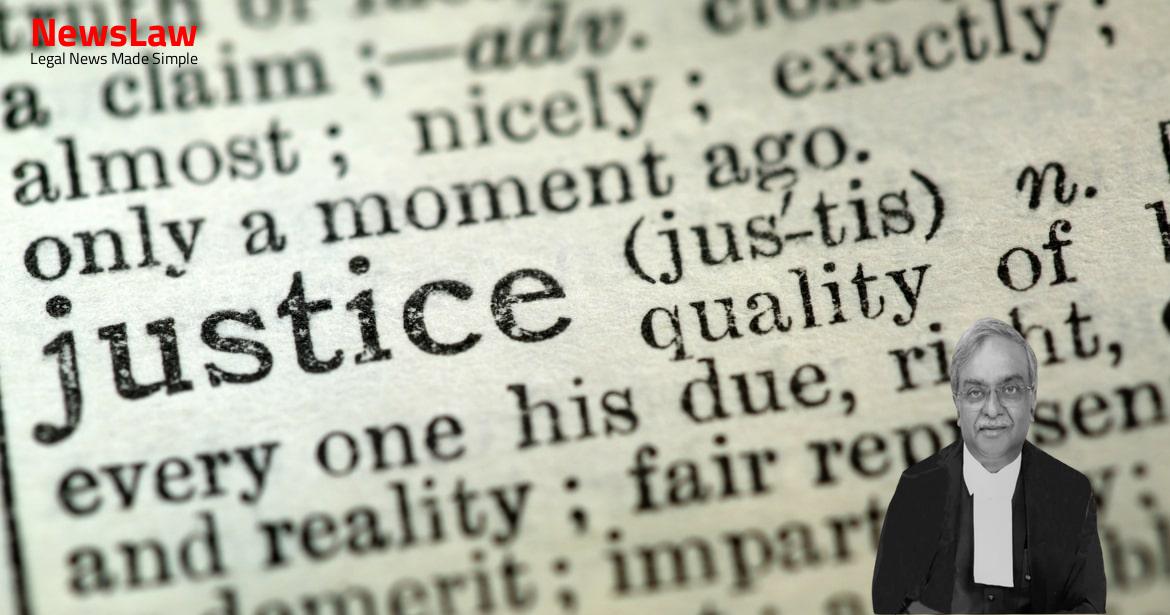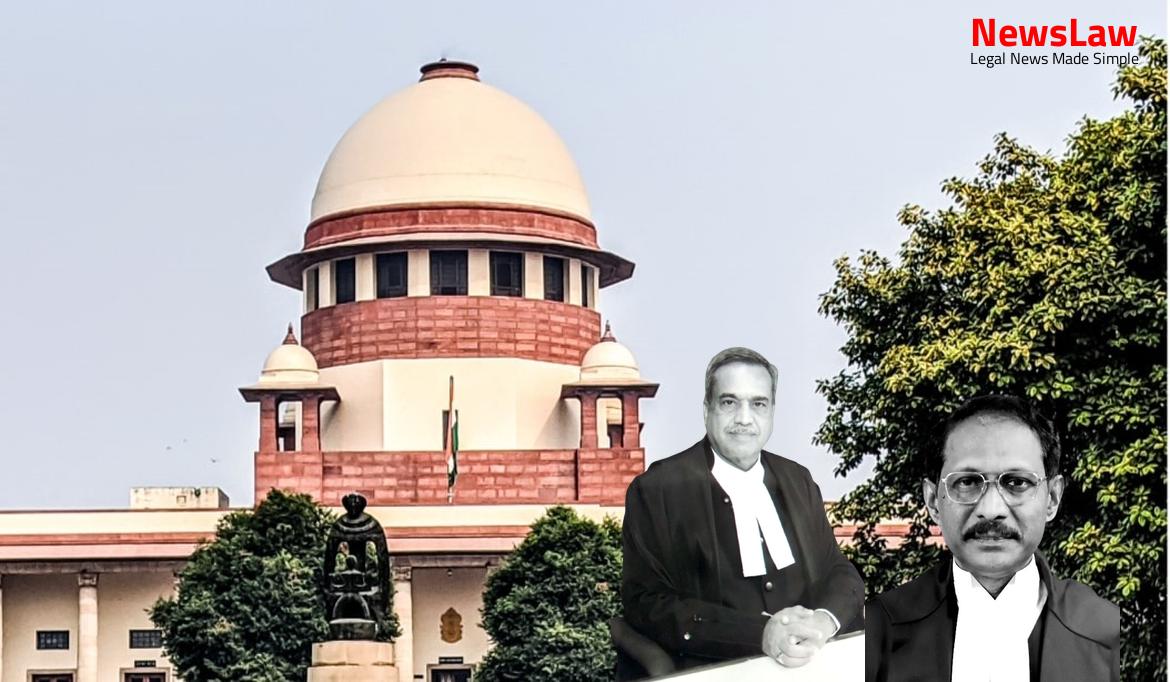A significant decision by the Supreme Court of India regarding the authority of the Central Information Commission under the RTI Act. The case revolves around upholding transparency and accountability in governance, ensuring the smooth functioning of public authorities. Stay informed about the legal implications and impact of this ruling on the administration of the RTI Act.
Facts
- The present appeal challenges the judgment and order dated 21.05.2010, passed by the High Court of Delhi in Writ Petition (C) No 12714 of 2009.
- The High Court quashed the Central Information Commission (Management) Regulations, 2007 framed by the Chief Information Commissioner.
- The High Court held that the CIC has no power to constitute Benches of the Commission.
- This appeal is confined to the issue of the validity of the Regulations and the powers of the CIC under Section 12(4) of the Right to Information Act, 2005.
- The Court determined that the CIC exceeded its jurisdiction.
- The High Court concluded that such powers are reserved for a judicial authority, specifically the Supreme Court or the High Court.
- The Delhi Development Authority (DDA) challenged the summoning of its Vice-Chairman by the CIC, claiming that such authority belongs solely to the High Court.
- DDA argued that the CIC, being an administrative body, should not have the power to exercise judicial functions to avoid blurring the lines between administrative and judicial roles.
- In response, the DDA filed a Writ Petition (C) No 12714/2009 before the Delhi High Court to contest the CIC’s order.
- The Applicant also requested directions for DDA to comply with its obligations under Section 4 of the RTI Act, which mandates proactive information disclosure by public authorities.
- The case stemmed from an RTI application by Mr. Sarbjeet Roy seeking details about the modification of the Master Plan of Delhi for 2021.
Also Read: Land Dispute Resolution: Specific Performance Decree for Plaintiffs in Ranchi Property Case
Issue
- Questioning the authority of the Central Information Commission under Section 12(4) of the RTI Act
- Declaring the Regulations framed by the CIC as ultra vires
- Framing questions to determine the authority of the CIC in appointing committees
- Specifically questioning the appointment of individuals other than the Commission’s members to investigate the implementation of obligations imposed on a public authority by Section 4 of the RTI Act
Also Read: Matter of M/S. SS. Infrastructure: Landmark Judgment by the Supreme Court of India
Arguments
- The petitioner argued that the CIC’s action in constituting benches exceeded its statutory authority.
- They emphasized the importance of maintaining the distinction between administrative and judicial functions.
- The petitioner contended that certain powers traditionally within the domain of judicial authorities, such as summoning high-ranking officials, should not be exercised by administrative bodies like the CIC.
- The formation of a committee comprising non-members by the CIC was seen as a violation of the RTI Act, as only the CIC itself or its members had the statutory authority to conduct inquiries.
- The respondents described the CIC’s current system as dysfunctional, citing issues like multiple registries, arbitrary procedures, and a significant backlog of cases.
- The respondents argued that the CIC’s actions under the guise of autonomy had led to inefficiencies and delays, undermining the RTI Act’s objectives.
- They maintained that such actions were not envisaged by the RTI Act and should be curtailed to ensure the smooth operation of public authorities.
Also Read: Health and Safety Rights for Workers: State of Gujarat v. Union of India
Analysis
- The Constitution Bench emphasized the importance of the voter in a democracy, stating that the voter should not be swayed from free and fair elections.
- The decision highlighted the role of the voter in conducting a social audit of candidates by being well-informed about their past.
- The case Election Commission of India v. Ashok Kumar recognized the broad powers of superintendence, direction, and control given to the Election Commission.
- Article 324 of the Constitution establishes the Election Commission with authority over the preparation and conduct of elections at various levels.
- Several landmark judgments have interpreted the powers of ‘superintendence, direction, and control’ of the Election Commission as per Article 324.
- The High Court of Delhi quashed the Regulations framed by the CIC as it exceeded the limits prescribed under the RTI Act and rules.
- The term ‘Regulations’ should not detract from their function, which is akin to any administrative orders necessary for the smooth operation of the Commission.
- The practical necessity of forming benches is underscored by the large volume of cases handled by the CIC.
- The Regulations were essential tools for ensuring the efficient administration and operation of the Commission.
- The broad authority under Section 12(4) of the RTI Act allows the CIC to take necessary actions for the efficient functioning of the Commission, including forming benches for work allocation among Information Commissioners.
- The autonomy of the CIC is crucial for promoting transparency and accountability in its functioning.
- A broader interpretation of the RTI Act is required to appreciate the functional equivalence of these regulations to other forms of administrative guidance.
- The essence of the regulations lies in facilitating internal management and procedural operations, as envisioned by the broad powers granted under the RTI Act.
- The CIC’s authority to frame Regulations for internal management and functional allocation is supported by the distinction between rule-making power of the Central Government and regulation-making power of bodies like the CIC.
- The CIC’s power to constitute benches and frame Regulations for effective management and work allocation is upheld.
Decision
- The ability to form benches is essential for the CIC to manage its workload effectively.
- The ability to allocate work among Information Commissioners is crucial for upholding citizens’ right to information.
Case Title: CENTRAL INFORMATION COMMISSION Vs. DELHI DEVELOPMENT AUTHORITY (2024 INSC 513)
Case Number: C.A. No.-002230-002230 – 2012



